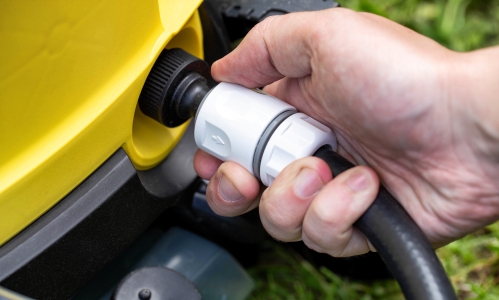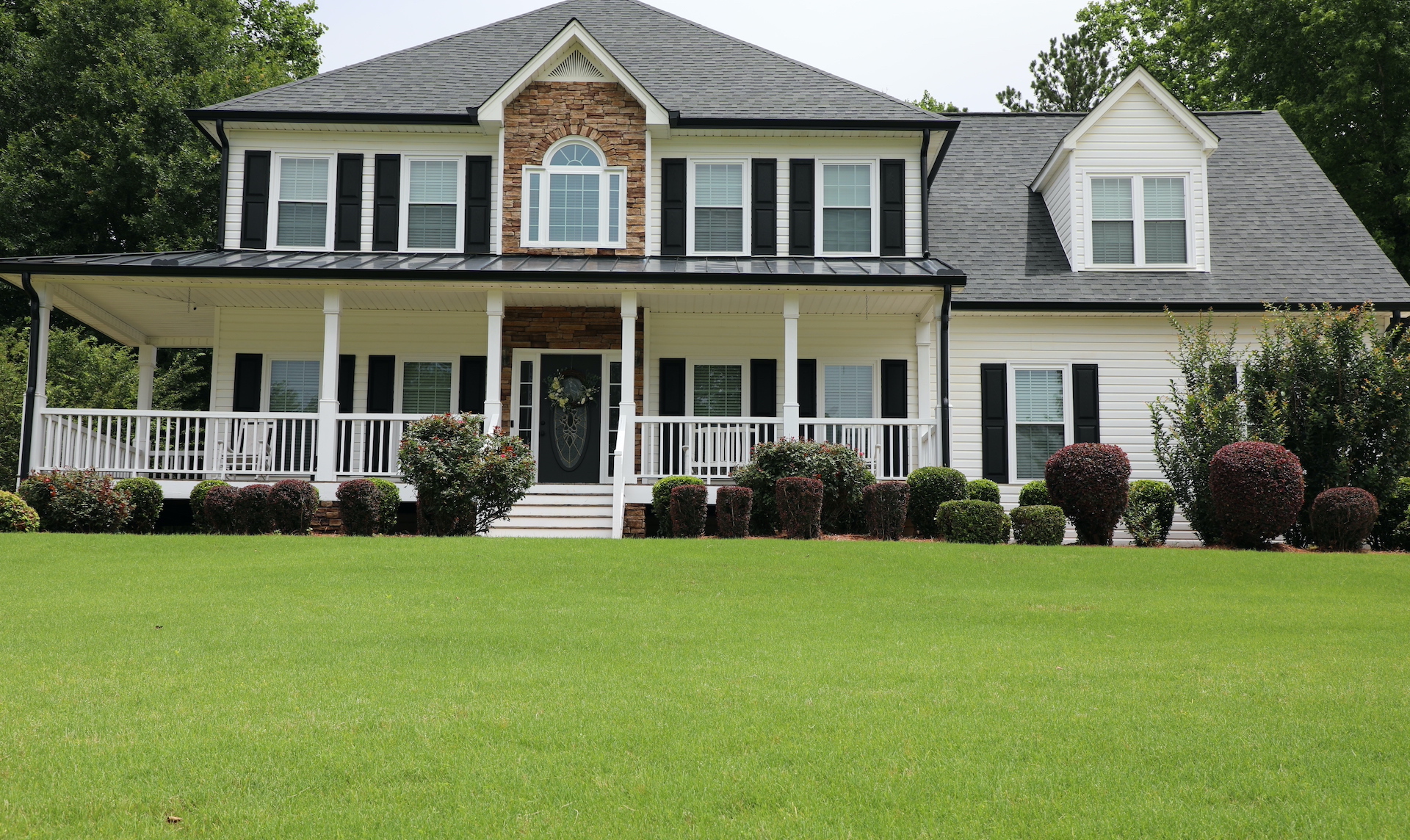
Is it Normal for Pressure Washer Businesses to Use Your Water?
Here at Southern Softwash Services LLC we often hear this question from homeowners and businesses in and around Rome, GA: “Will the crew use my water when they pressure‐wash my property?”
It’s a valid question, and in many cases, the answer is a resounding "yes."
So If you’re in Rome, GA, or surrounding areas, getting your driveway, siding, or commercial storefront cleaned, reading this will help you know what to expect.
But first let's hit the mini brief before we head into the details
Yes, it’s completely normal for pressure washing companies to use your outdoor water supply. It’s standard practice in the industry, especially for residential jobs. The water cost is minimal, and most professionals will let you know before starting the job.
1. Industry Standard: Yes, They’ll Use Your Water
Let’s get right to it: using your outdoor spigot is not only normal, it's pretty much it’s the standard.
Most pressure washing companies plug their equipment into your tap and let your municipal water run through their machine
This makes sense for several reasons:
- Cost-effectiveness: The small amount of water used is cheaper than hauling and storing water.
- Convenient equipment setup: Most residential faucets can keep up with typical pressure washers that use 2–4 gallons per minute (GPM)
- Simplicity & efficiency: Bringing your own water tank is heavy and inconvenient.
So expect the crew to use your spigot—unless your setup just can’t handle it.
Tank vs. Tap: When Do They Bring Their Own Water?
Some jobs do require self-supplied water, especially in these cases:
- Remote locations without running water (e.g., new construction, cabins)
- Commercial jobs needing high flow rates above household capacity
- Client request (e.g., well water, liability, or landscaping concerns)
In these cases, water tanks (200–400 gallons) may be mounted on trucks or trailers. But those come with extra charges for hauling, refilling, and handling heavy equipment.
Do You Need to Be Home While They Use Your Water?
Not necessarily, but it helps. Most pressure washing crews can connect to an outdoor spigot without needing you to be present, as long as access is available.
That said, being home can be useful for a quick walk-through, especially if you have preferences about which tap to use, special landscaping considerations, or water access that requires unlocking a gate or valve.
If you’re not going to be home, just let the company know in advance where to find the spigot and if there are any quirks they should be aware of.
Clear communication avoids delays and ensures your pressure washing service runs smoothly from the moment they arrive.
How Much Water Are We Talking?
You might think pressure washing guzzles water like a thirsty beast, but it actually uses less than an open garden hose.
- A light-duty pressure washer (the kind used around homes) typically uses about 2 gallons per minute, which adds up to around 120 gallons per hour.
- A medium-duty professional setup might use 3.5 gallons per minute, or roughly 210 gallons in an hour.
- Commercial-grade machines, on the other hand, can use as much as 8 gallons per minute—around 480 gallons per hour.
Even with a fairly powerful 4-gallon-per-minute unit, most residential jobs, like house washes or driveway cleanings, use less than 500 gallons total. That’s just a few dollars’ worth of water at most.
In cities like Rome, GA, water rates are fairly low, just a few cents per thousand gallons. So you’re unlikely to notice much of a difference on your utility bill.
3. What If Your Water Pressure Isn’t Enough?
Home taps typically supply around 4 GPM—enough for most residential pressure washers . But if your water pressure is low or you’ve got a well with weak flow, pros will notice.
If your supply can't keep up, pressure washing companies usually have a backup plan, like bringing their own tank or buffer system, but expect a slightly higher fee to cover logistics.
As one Redditor explained:
“We always hook up to customer water. We don’t run off tanks at all… we do
always check when doing the bid that they have good enough water pressure.”
5. Don’t Forget Backflow Protection!
Connecting to your tap means preventing any contaminated wash water from flowing backward into your home plumbing. A small backflow prevention (check valve) is usually required—and easy to install.
Some pressure washers have built-in prevention; others rely on the homeowner’s setup
Should Costs Include Water Fees?
Because water cost is minimal (often just $1 or less per job), most pressure-washing quotes do not include it.
If you use your tap, you’re covering the cost in your monthly bill.
If a crew brings their own water, expect a higher fee to cover fuel, equipment, and labor. Good companies are clear about it ahead of time, just ask.
Is This Legal? What About Georgia Water Rules?
In Georgia, commercial pressure washing is considered a professional exemption during drought restrictions
That means even if the city restricts watering lawns, licensed washer crews can legally operate. Just make sure:
- Wastewater doesn’t enter storm drains or creeks
- Detergents and contaminants are contained or filtered before disposal
Community advocacy groups (like Athens-Clarke County) require proper wash-water practices to protect streams and rivers, and many companies use portable mats or vacuums to capture dirty water.
Tips for Rome, GA Customers
If you're looking for soft washing services in Rome, GA:
- Expect the crew to hook up to your outdoor spigot
- Confirm your water flow rate during scheduling
- Ask if they need backflow protection
- Ensure they’ll contain runoff per local stormwater rules
- Clarify whether water use is included in the estimate. A courteous message like, “I have good water flow at the front spigot, will that be enough?” helps everything go smoothly.
Environmental Responsibility: Best Practices
To protect local water quality:
- Eco-conscious operators may even install water reclamation systems to filter and reuse water, ideal for big or commercial jobs.
Final Thoughts: It’s Normal, Low-Cost, and Typically Handled
So yes, it's perfectly normal and practical for pressure-washer businesses to use your water spigot. For most Rome, GA jobs:
- They’ll plug into your outdoor tap
- That water usage costs just pennies
- Backflow prevention and runoff containment keep things safe
You’ll rarely need a water tank, unless it's a remote or high-demand job
When hiring, make sure Southern Softwash Services LLC (or whoever you're working with) clarifies water setup, flow requirements, and any thoughtful runoff containment measures.
We want you to feel confident in knowing exactly how water is used during pressure washing so your experience in Rome, GA, remains transparent, clean, and worry-free!

See the Difference a Professional Wash Makes
Schedule Your Pressure Washing Service In Rome Now!